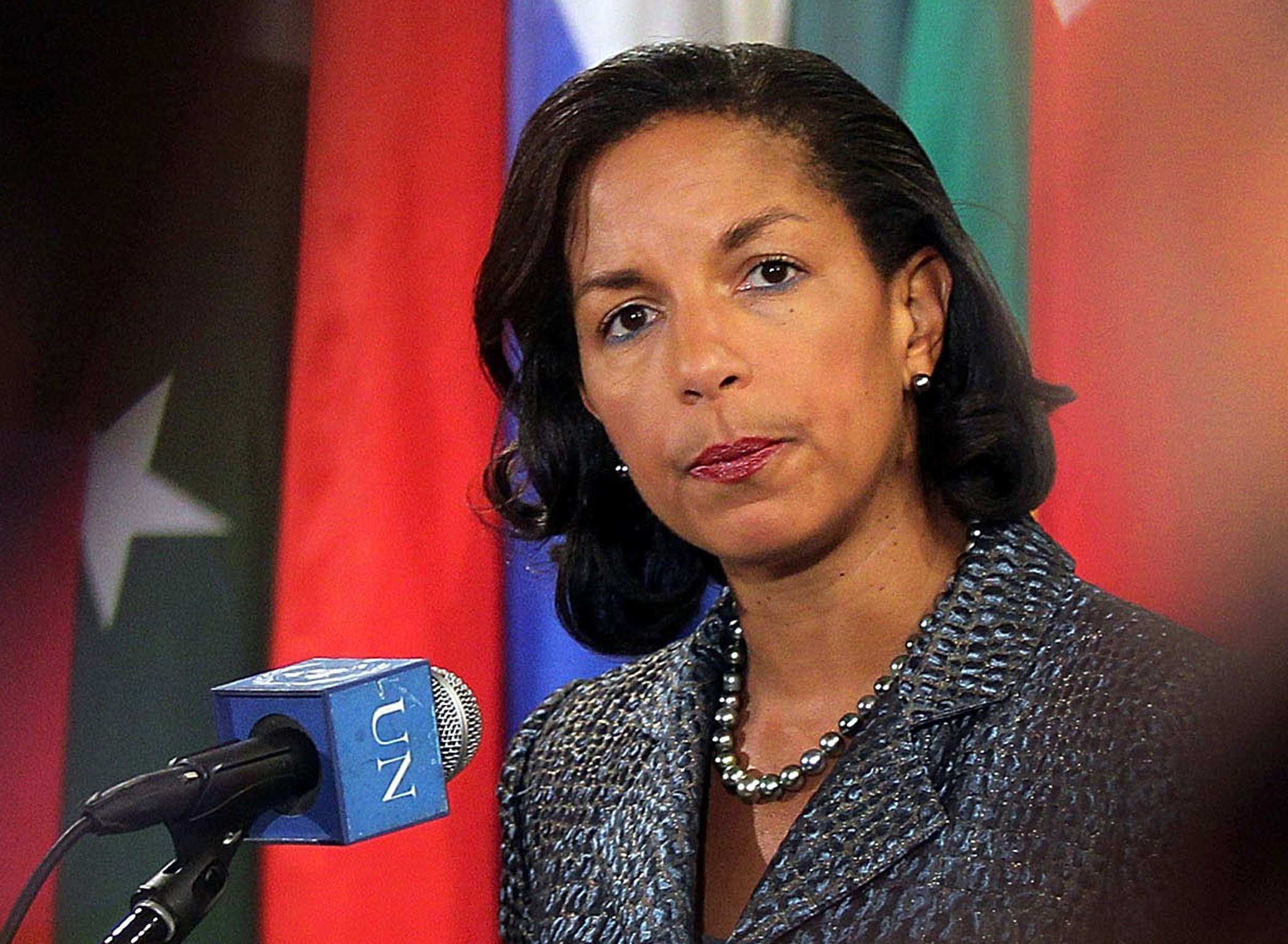Why do the Republicans want to stop Susan Rice succeeding Hillary Clinton as Secretary of State?
The President knows that his current ambassador to the UN is an exceptional talent. What he can't be sure of is how she's so annoyed his political opponents


Washington can move in mysterious ways, but rarely more strangely than now: just why are Republicans so dead set on scuppering Susan Rice?
The lady, as anyone who follows American foreign policy-making knows, is not just anyone. She is the current favourite – or at least, according to every report, the candidate favoured by Barack Obama – to succeed Hillary Clinton as Secretary of State when the latter steps down, almost certainly within a matter of weeks.
This Rice is not to be confused with the Republican variety, Condoleezza, although the two have much in common: not only sex and surname, but African-American heritage and close ties with Stanford University. (Condi was an assistant professor there in the 1980s when her namesake took an undergraduate degree in history before winning a Rhodes scholarship to New College, Oxford.)
Susan Rice is, of course, a Democrat, who cut her political teeth as a foreign policy adviser to Michael Dukakis, the party's defeated 1988 presidential candidate, and entered government during the Clinton administration. In 2008, she was among the first and most prominent former Clinton officials to back Obama in his battle with Hillary for the Democratic presidential nomination.
That alone would surely have earned her a place in the boss's good books. But even without that, her service as a National Security Council official, followed by a fellowship at the Brookings Institution here and now almost four years as US ambassador to the United Nations, make Rice amply qualified to be the country's top diplomat. Not, however, if Republicans have their way.
Last week, 97 Republican House members sent a letter to the President saying she was unfit for the job. More pertinently, John McCain and Lindsey Graham, two Republican foreign policy grandees in the Senate which would have to confirm the appointment, are publicly threatening to block her nomination, should it be sent forward by the White House. Less obvious is why.
Her ostensible sin is to have declared, five days after the 11 September assault on the American mission in Benghazi in which four people including the US ambassador were killed, that the episode was a spontaneous protest against an anti-Muslim video that was causing uproar in the Islamic world, rather than an al-Qa'ida operation.
The discrepancy between Susan Rice's words, and the subsequent conclusion of the US intelligence authorities that it had indeed been a premeditated attack, was quickly seized on by the Republicans and their media echo-chambers at Fox News and conservative talk radio as an issue in the presidential campaign. The Obama people, it was charged, had lied to the country in order to cover up scandalously inadequate security at the Benghazi consulate and to avoid undercutting their claims to have all but eliminated the al-Qa'ida threat.
In fact, Rice's part in events was marginal. She had nothing to do with intelligence on Libya, or embassy security procedures. She was simply the designated senior administration foreign policy official that Sunday, summoned to do the rounds of the morning talk shows, armed with pre-arranged "talking points". She was circumspect in her conclusions too, leaning towards the video as the most likely explanation for what happened, but pointing out that the full facts were not yet known.
For Republicans, she has become a designated scapegoat – even though Benghazi signally failed to catch on as an election issue. For all but the most wilfully partisan, what happened was a matter of sorrow, not outrage. Yet still Republicans take aim at Rice, maintaining what Obama at his first post-victory press conference called an "outrageous" campaign to "besmirch her reputation". Why?
There are any number of theories, not least personal vendetta. Rice can be undiplomatically blunt and cutting. John McCain, a notorious grudge-bearer, will not have appreciated Rice calling his foreign policy "reckless" when he was running against her boss in 2008 – still less her mocking description of his campaign visit to Baghdad as "strolling around the market in a flak jacket".
Maybe Republicans want to prove that their opponents too can mess up on national security, just as they did over the September 2001 attacks and Iraq. Clearly there were lapses on security in Benghazi, but Obama has already admitted as much. Maybe Republicans have also dug up earlier incidents to discredit Rice, possibly relating to the Rwandan genocide when she was a top Clinton adviser on Africa. Or perhaps they just want to tar the Obama presidency, remarkable thus far for the absence of scandal, with any kind of misdeed. Or the motive could be more basic still: to demonstrate that even after a thumping election defeat, Republicans matter.
And – whisper it not – race and sex could have something to do with it. As The Washington Post noted on Friday, 80 of the 97 signatories of the House Republican letter are white males, and more than half represent states of the old Confederacy. Jim Clyburn, the third ranking House Democrat , who is black, has flatly accused his colleagues of racism, while a dozen female Democrats have accused Republicans of sexist prejudice.
If so, all one can say, after women's votes gave Obama his win on 6 November, is: will they ever learn? Female secretaries of state are nothing new: if Susan Rice were to succeed Clinton, four of the last five would have been women (and the fifth was a black man, Colin Powell).
Spare a thought for John Kerry, the experienced Senate Foreign Relations chairman once considered a near certainty to succeed Hillary Clinton. Alas, he's white and male. Then again, who knows? This Washington mystery still has a way to run.

Join our commenting forum
Join thought-provoking conversations, follow other Independent readers and see their replies